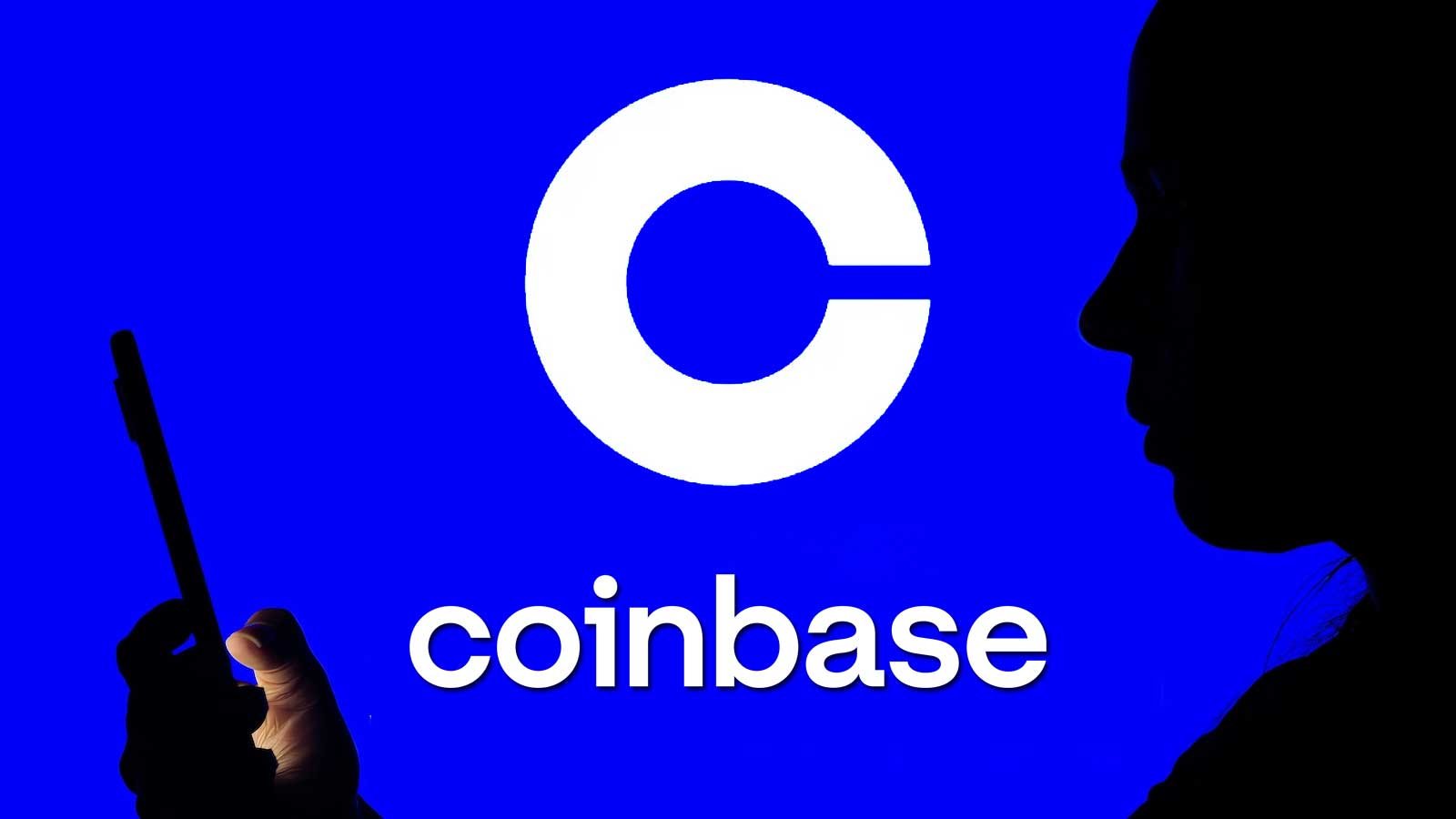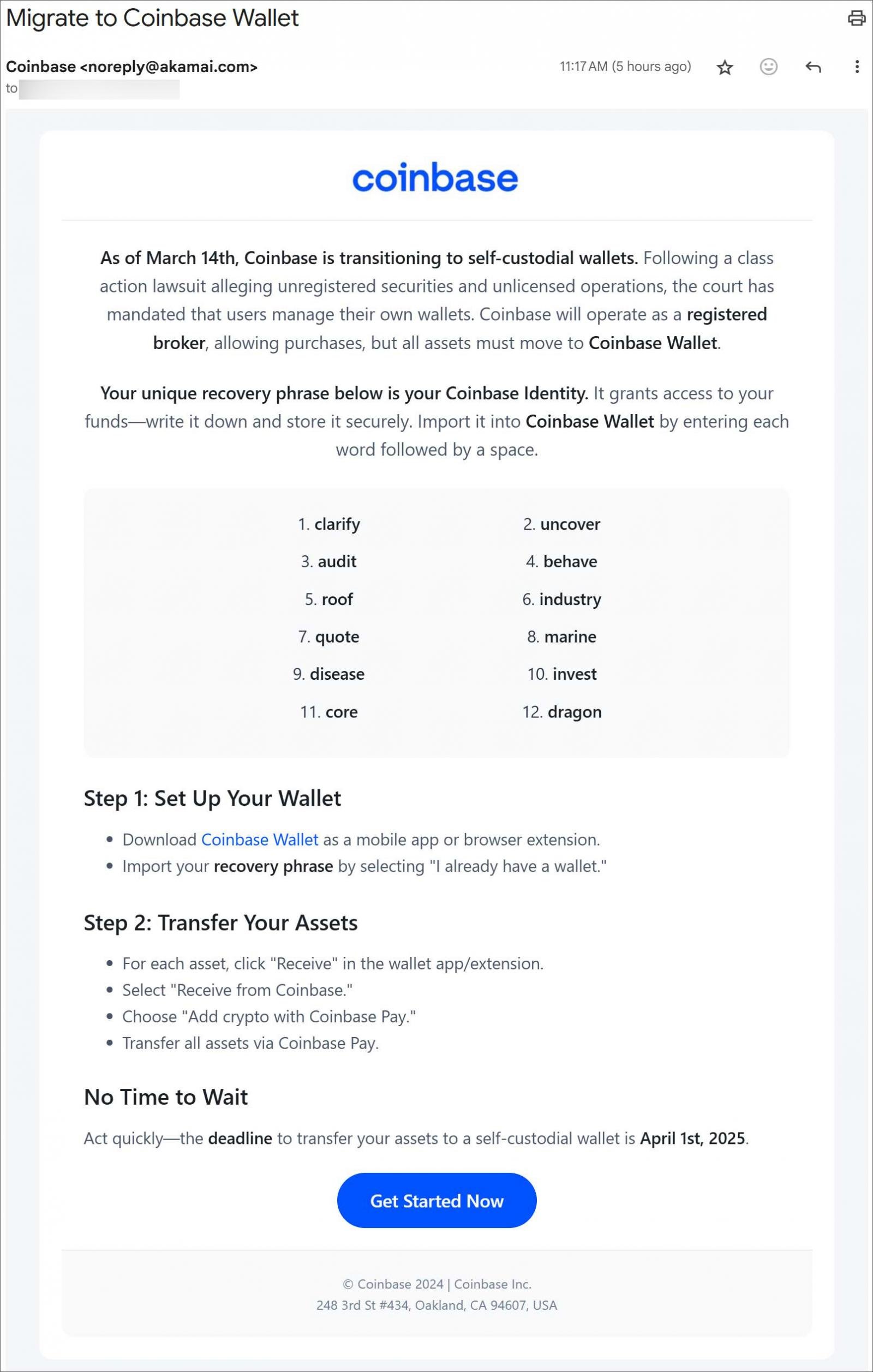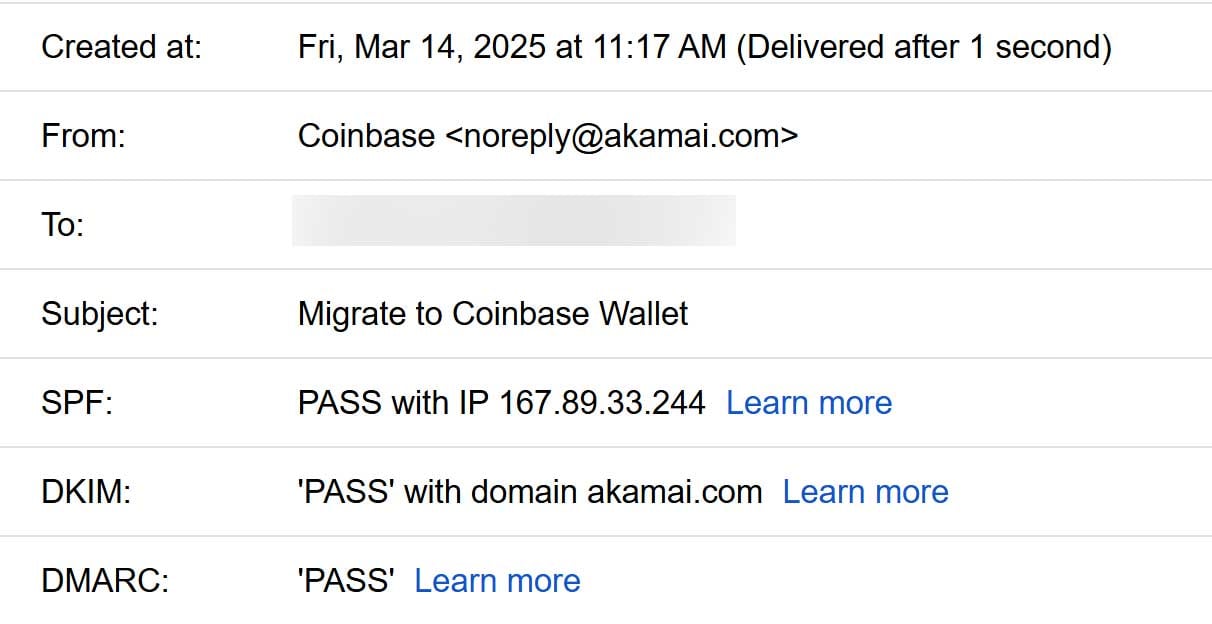
A big-scale Coinbase phishing assault poses as a compulsory pockets migration, tricking recipients into organising a brand new pockets with a pre-generated restoration phrase managed by attackers.
The emails have a topic of “Migrate to Coinbase Pockets” and state that each one prospects should transition to self-custodial wallets. The e-mail additionally offers directions on learn how to obtain the reliable Coinbase Pockets.
“As of March 14th, Coinbase is transitioning to self-custodial wallets. Following a category motion lawsuit alleging unregistered securities and unlicensed operations, the courtroom has mandated that customers handle their very own wallets,” reads the Coinbase phishing e-mail.
“Coinbase will function as a registered dealer, permitting purchases, however all property should transfer to Coinbase Pockets.”
“Your distinctive restoration phrase beneath is your Coinbase Identification. It grants entry to your funds—write it down and retailer it securely. Import it into Coinbase Pockets by coming into every phrase adopted by a spa

Supply: BleepingComputer
The e-mail claims to be from Coinbase however has a reply tackle of noreply@akamai.com. Additionally it is despatched from the IP tackle 167.89.33.244, which is a SendGrid IP tackle that resolves by way of DNS to o1.soha.akamai.com.
As the e-mail seems to have been despatched immediately via SendGrid and what seems to be Akamai’s account, it passes the SPF, DMARC, and DKIM e-mail safety checks, bypassing spam filters on many accounts.

Supply: BleepingComputer
BleepingComputer contacted Akamai to ask if considered one of their SendGrid accounts had been compromised and was despatched the next assertion.
“Akamai is conscious of stories concerning a possible phishing rip-off concentrating on Coinbase customers that includes an Akamai e-mail area. We take data safety very critically and are actively investigating the matter,” Akamai informed BleepingComputer.
“Phishing scams stay a prevalent cyber risk, and we urge all customers to train warning in the event that they obtain unsolicited emails, particularly these requesting private or account data. In the event you suspect that an e-mail could also be a phishing try, please deal with it as such and keep away from clicking any hyperlinks or offering any delicate data.”
“We’re working to handle the state of affairs and can proceed to observe and mitigate any associated dangers. Within the meantime, we advocate heightened vigilance to assist defend your private data.”
A intelligent crypto phishing marketing campaign
What makes this phishing marketing campaign stand out is that there aren’t any phishing hyperlinks current inside the e-mail, and all hyperlinks go to Coinbase’s reliable Pockets web page.
As a substitute, the phishing e-mail features a restoration phrase, which the phishing e-mail says ought to be used to arrange your new Coinbase Pockets.
Restoration phrases, also called “seeds,” are a sequence of phrases that perform as a human-readable model of a cryptocurrency pockets’s non-public key.
Anybody who is aware of this restoration phrase can import the pockets onto their very own gadgets, permitting them to steal any cryptocurrency and NFTS saved inside it.
Whereas most cryptocurrency phishing scams try and steal your restoration phrase, which is then utilized by the attacker to steal your funds, this one acts in reverse.
This phishing e-mail could be very intelligent, as as an alternative of stealing your phrase, they’re supplying you with one that’s already identified and managed by the attacker.
As soon as a consumer units up a brand new pockets with that phrase and transfers funds into it, the entire property will now be accessible to the risk actor who can then switch them to a different pockets they management.
Coinbase is conscious of the rip-off, pointing BleepingComputer to a put up on X the place saying they’ll by no means restoration phrases to prospects.
“Reminder: Watch out for restoration phrase scams,” Coinbase posted on X.
“We’re conscious of recent phishing emails going round pretending to be Coinbase and Coinbase Pockets. We’ll by no means ship you a restoration phrase, and it’s best to by no means enter a restoration phrase given to you by another person.”
For anybody who fell for this rip-off, if the funds are nonetheless accessible on the newly created pockets, you ought to be fast to switch them again out to your individual earlier than they’re stolen by the risk actors.
Whereas the rule has all the time been to by no means share your restoration phrase with one other particular person or an internet site, it ought to now be expanded to by no means use a restoration shared with you by way of emails and web sites, as they’re probably used to steal your cryptocurrency.


